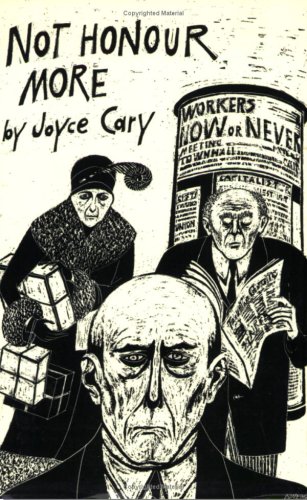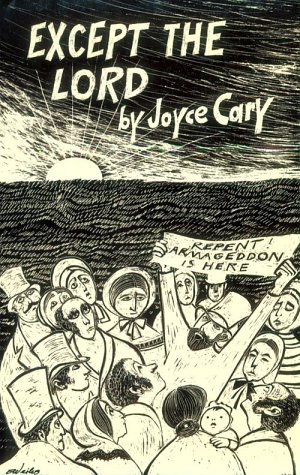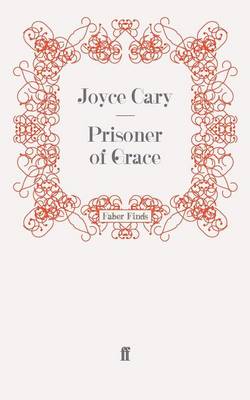Second Trilogy
3 total works 3 total works planned
Joyce Cary (1888-1957) is indisputably one of the finest English novelists of this century. His reputation at his death equaled those of such contemporaries as Aldous Huxley and Evelyn Waugh. His exuberant style allowed him to create a vivid array of men and women whose stories embody the conflicts of their day and whose characters are beautifully realized. Written in his last years, his “Second Trilogy” (Prisoner of Grace, Except the Lord, and Not Honour More) shows the mature Cary at his most brilliant, as he unfolds the tragicomedy of private lives compromised by politics and religion. While in his earlier trilogy (Herself Surprised, To Be a Pilgrim, and The Horse’s Mouth) he pits the visionary artist against an indifferent but by no means dull world, in his masterful “Second Trilogy” he maps that gray landscape between good and evil where life is at its most dangerous. The concluding novel in Joyce Cary’s “Second Trilogy,” Not Honour More (1955) takes up at the point Prisoner of Grace (1952) ends. The setting is Palm Cottage, the remnant property of the Slapton-Latter family and now the scene of an unhappy ménage consisting of Captain Jim Latter (retired), his wife Nina (née Woodville), and her former husband, Chester Nimmo. It is 1926, the year of the General Strike. Nimmo, once a Cabinet Minister, sees the situation as his chance for a political comeback, while Jim, head of the emergency civilian police, feels it his duty to take his stand, however desperate, against “the grabbers and tapeworms… sucking the soul out of England.” For Nina, the trapped go-between, their inevitable clashes can lead nowhere but disaster. Not Honour More is Jim’s book, “my statement, so help me, as I hope to be hung.”
"Except the Lord" is the second novel in the second trilogy, or triptych to use Cary's preferred term. In his own words: 'In this second book we see where (Nimmo's) ideals took form. We are given his childhood as a poor boy, son of a horseman on a farm ...Left-wing ideas are truly called radical. They have very deep roots in Protestant religion. The book, therefore, is not about politics, it is about a child's reaction to poverty and social injustice, and the effect upon that reaction of a religious education. That is, it is a study of character, and so of that region of feeling and idea in which politics have their beginning and achieve their ends'. The literary critic, Walter Allen, wrote in his Reader's report for the original publisher, Michael Joseph, that 'within the limits' Cary had set himself, "Except the Lord" was 'completely successful and a very fine novel with several memorable characters of a dignity moving because of the austerity with which they are presented'. "Except the Lord" recounts in autobiographical form the early life of Chester Nimmo (based on Lloyd George) who became a great Radical leader in Edwardian days.
"The Prisoner of Grace" is the first novel in the second trilogy, or triptych to use Cary's preferred term. The other two are "Except the Lord" and "Not Honor More" in that order. All three are reissued in Faber Finds. The central character, Chester Nimmo, is based on Lloyd George. Appropriately, he is a spellbinder. In his Reader's report for the original publisher, Michael Joseph, the literary critic, Walter Allen considered the 'recreation of the very feel of political passions between 1900 and 1914' was 'brilliant' - 'the period, politically, is completely captured in all its intensity.' He ended by saying 'As a state of a politician in action it is quite superb; one feels at the end that here, almost for the first time, is the truth about the politician, the man for whom politics is a way of life in the same dedicated sense as for the artist art may be a way of life, or religion for a priest...I think "Prisoner of Grace" is a great feat of imagination.'


